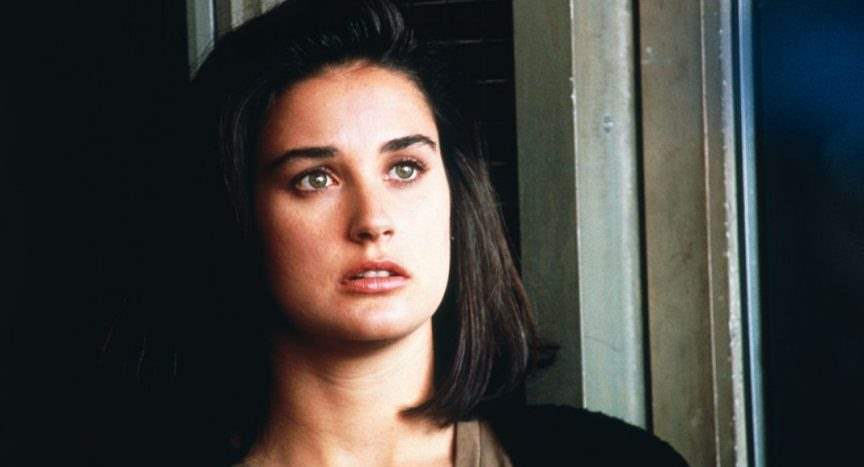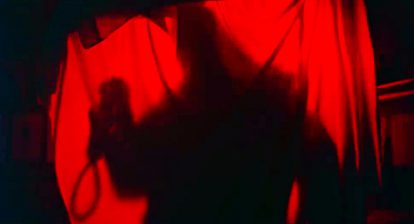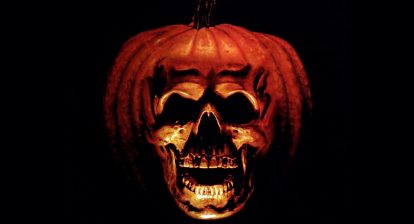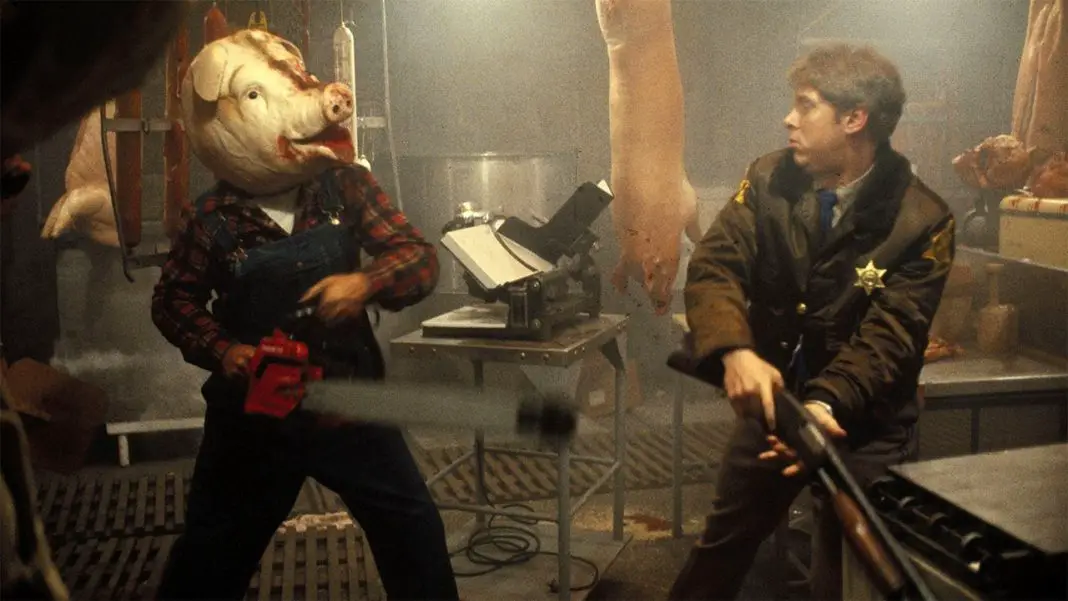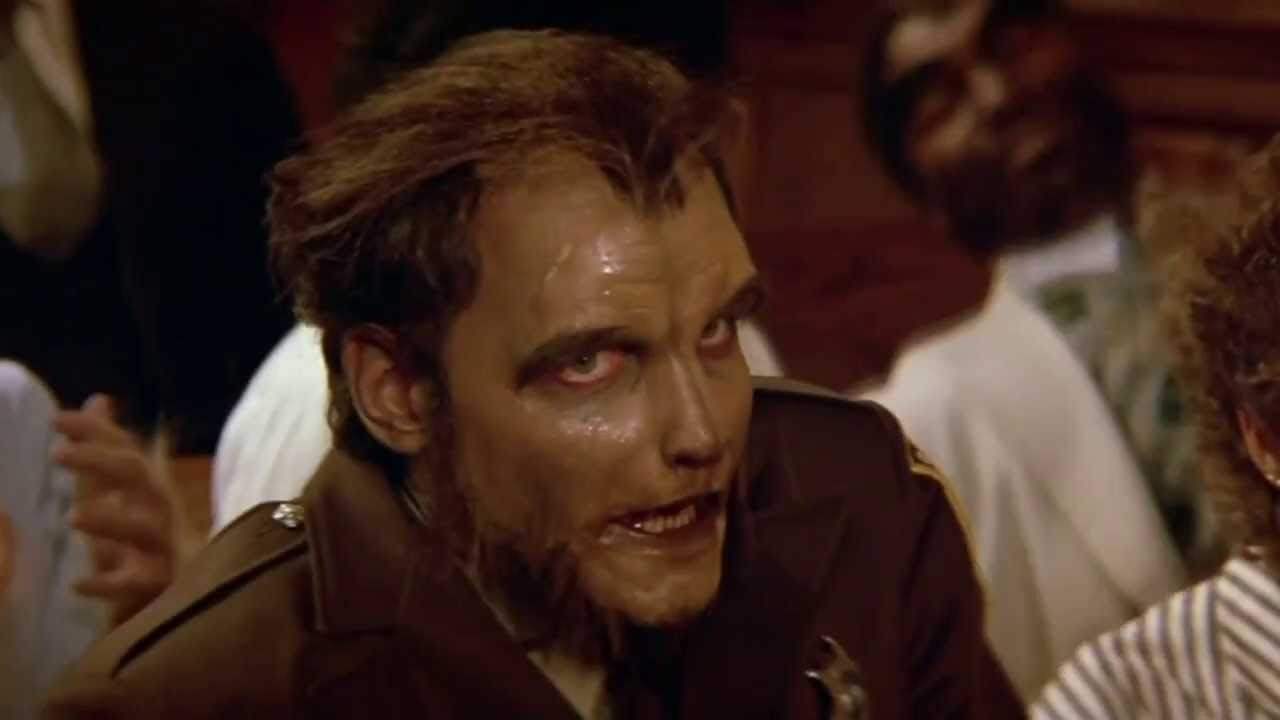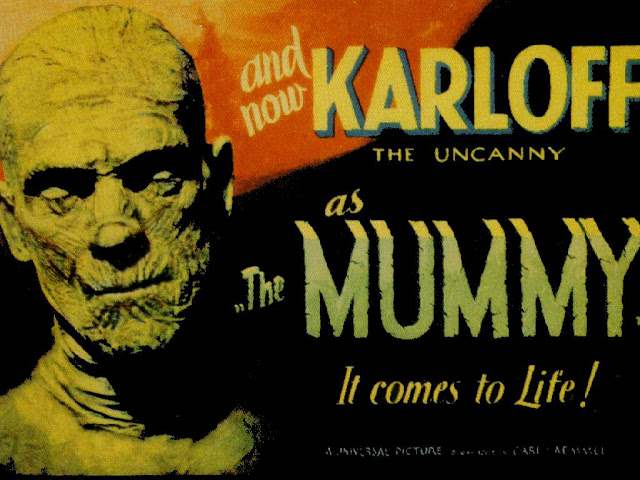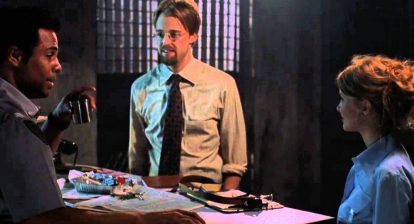Welcome to Back to the ’80s. This recurring feature aims to take a look at the good, the bad, and the ugly from horror’s most beloved decade. Regardless of which category a particular film falls under, this segment will spotlight films that horror fans can appreciate for one reason or another. We will look at how some of these flicks have stood the test of time and others have not aged quite so well. Regardless of what they look like today, these efforts from the 1980s laid the groundwork for the horror genre as we know it today.
Abby Quinn (Demi Moore) is a soon-to-be mother nervously awaiting the birth of her first child. She and her husband, Russell (Michael Biehn), are still dealing with the emotional loss of a recently unsuccessful first pregnancy. Meanwhile, other parts of the world are experiencing strange phenomena. Lurking at every site is a mysterious man named David Bannon (Jürgen Prochnow). Before each strange incident occurs, Bannon signals his involvement by breaking a sealed document. Also showing up to these various locations is Father Lucci (Peter Friedman), a priest sent to investigate whether these events have scientific explanations or are signs from God.
Directed by Carl Schultz, The Seventh Sign is an engaging feature with solid performances. Released in 1988, this apocalyptic horror film stands apart from the contemporary slashers from the time. Instead of focusing on knocking off a series of nameless teenagers, The Seventh Sign shines a spotlight on adult-oriented fears against a religious backdrop. Occasionally stepping over the lines of logic, the film manages to get across its message for the audience. Appealing performances from the lead cast members carry the film’s suspense all before ending with a dramatic conclusion.
Check Out: Horror Movies Intended for Adults that are Surprisingly Family Friendly
Schultz builds a steady tension throughout The Seventh Sign. Nowadays, a movie with similar themes would likely be dependent on CGI special-effects to generate suspense. Having to take a practical approach, Schultz manages to create a convincing level of realism for the various stages of natural disasters. One such example shows Father Lucci sitting in a rowboat as he scoops up thick red water to signify the rivers are turning to blood. This moment works just as well as a digital effect turning the entire body of water to blood. Schultz relies upon the actors to make the scenes believable. The combination of Lucci and his companions looking at the water produces the needed atmospheric tension.
There are a few filming locations used to show that the events happening in The Seventh Sign are occurring all around the world. Still, it is the intimate camera work as Schultz zooms in on the characters that helps set the movie’s tone. This makes everything in the film seem somehow bigger than it is in reality. The Seventh Sign is at its most successful when centering on the main trio at the Quinn household. There is a nervous tension that is developed in such moments as Abby snooping around David’s back apartment. Also, the viewer is able to sympathize with Abby’s loneliness and anxieties when Abby finds herself in despair as to what might happen with her unborn child.

Demi Moore delivers a solid, star-making performance as Abby Quinn. On a fun side-note, the filmmakers of Ghost have said that it was her portrayal of Abby that enabled them to see Moore as Molly for their iconic 1990 film. As evidenced by Rosemary’s Baby (1968), it was not completely unheard of for horror audiences to witness a pregnant woman fighting for the life of her unborn child. There is something inherently vulnerable in watching an almost full-term woman chasing men in the rain, falling hard on the pavement during a hailstorm, and standing up to a 2000-year-old prisoner of God. Yet, Moore contains this vulnerability and elevates Abby to a woman of strength willing to stab, shout, and fight anyone that might cause her baby harm.
Related: Prevenge Makes Pregnancy Scary Again
Furthermore, even in her delicate state Moore defines Abby as a woman capable of greatness. In searching for answers to everything happening, she is both inquisitive and observant. Moore also shows a believably darker side to her character. There is a memorable scene where Abby is in a bathtub contemplating her remaining choices and one, in particular, stands out. The viewer can see the empty hopelessness in Moore’s eyes as well as the desperation for another choice. Before The Seventh Sign, Demi Moore was typically associated with the Brat Pack. By no means a slight to that group’s validity, this feature showed what Moore could do with a mature role.
Moore is surrounded by well-cast characters guiding the course of her actions. In addition to being Abby’s caring husband, Russell Quinn is a defense attorney under pressure with a well-publicized death row case. Played by Michael Biehn, Russell struggles to be sensitive to his wife’s needs while at the same time is stressed out trying to save his client Jimmy (John Taylor) from execution. Before The Seventh Sign, Biehn was famous for his action-oriented roles in The Terminator (1984) and Aliens (1986). His role here shows a different side to the actor. Where Biehn’s type of character in earlier flicks took an assertive stance, Russell’s actions are determined by other people. He is often helpless and forced to accept the hand dealt to him time and again. Biehn shows a sensitive side revealing quieter dramatic chops.
Two men with dual natures come to affect Abby’s life. Jürgen Prochnow is the mysterious drifter that Abby is at first intrigued by and then fears. She comes to believe he is a religious fanatic out to cause harm to her unborn child. Prochnow is effective at seeming both kind and potentially menacing. As Father Lucci, Peter Friedman develops a man with growing excitement to one condemned by his judgement. Both actors display different ideas of power. Prochnow’s has a quiet resonance while Friedman booms loudly. Rounding out the cast is the unassuming Manny Jacobs as Avi. While not exactly the comic relief, Avi adds a lighter tone to the serious moments and represents hope for the future.
The Seventh Sign succeeds in capturing a suspenseful atmosphere that examines adult fears such as with pregnancy and religion. The film is not without problematic moments of logic and responsibility. There is a subplot focusing on Jimmy played by John Taylor. Taylor is striking as a young man resolute in his convictions. Jimmy’s parents were siblings and he is on trial for killing them in the name of God. However, Taylor has Down syndrome and there seems to be an outdated suggestion that DS can be caused by incest. There is no medical correlation between DS and incest.
Additionally, the film’s ultimate message in following “the signs” implies that Jimmy was correct to commit murder based on Old Testament beliefs. This is a potentially harmful message to send out in a hostile contemporary climate. Especially one where some people in society justify their violent acts based on verses from the Old Testament. A less ambiguous martyr could have been employed in order to make the same point.
Also See: Ten Horror Films Condemned by the Catholic Church
Overall, The Seventh Sign is a solid choice for fans of 1980’s horror looking for something with a mature theme. The special-effects appear to be made on a lower budget; however, they hold up well and serve their purpose. Especially with the assistance of dedicated performances by the main cast. Schultz develops a tense atmosphere that is suspenseful and engaging. The problematic elements are obvious but do not ruin the film’s overall message of hope against despair. Particularly enjoyable is watching a woman shed the vulnerability of pregnancy to help save the world.

